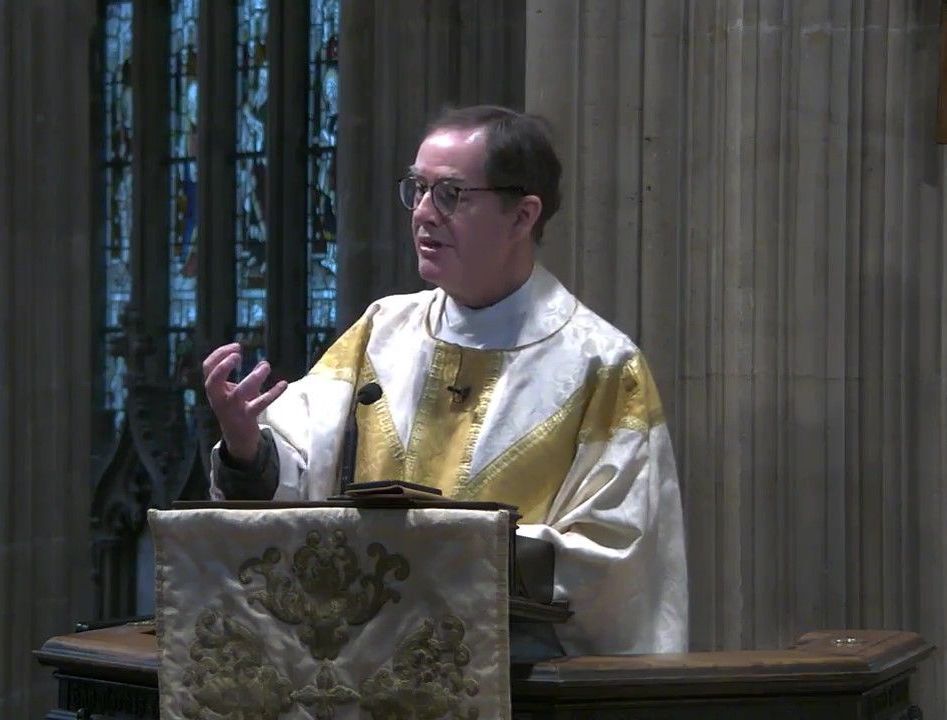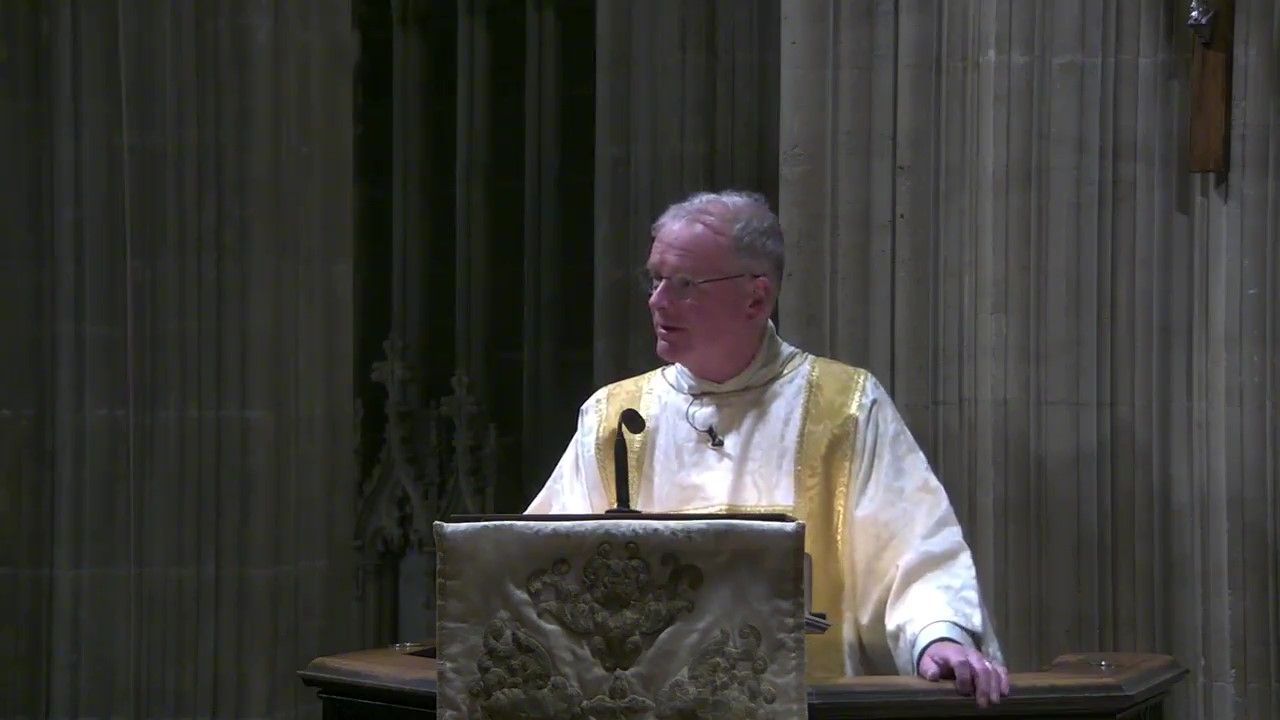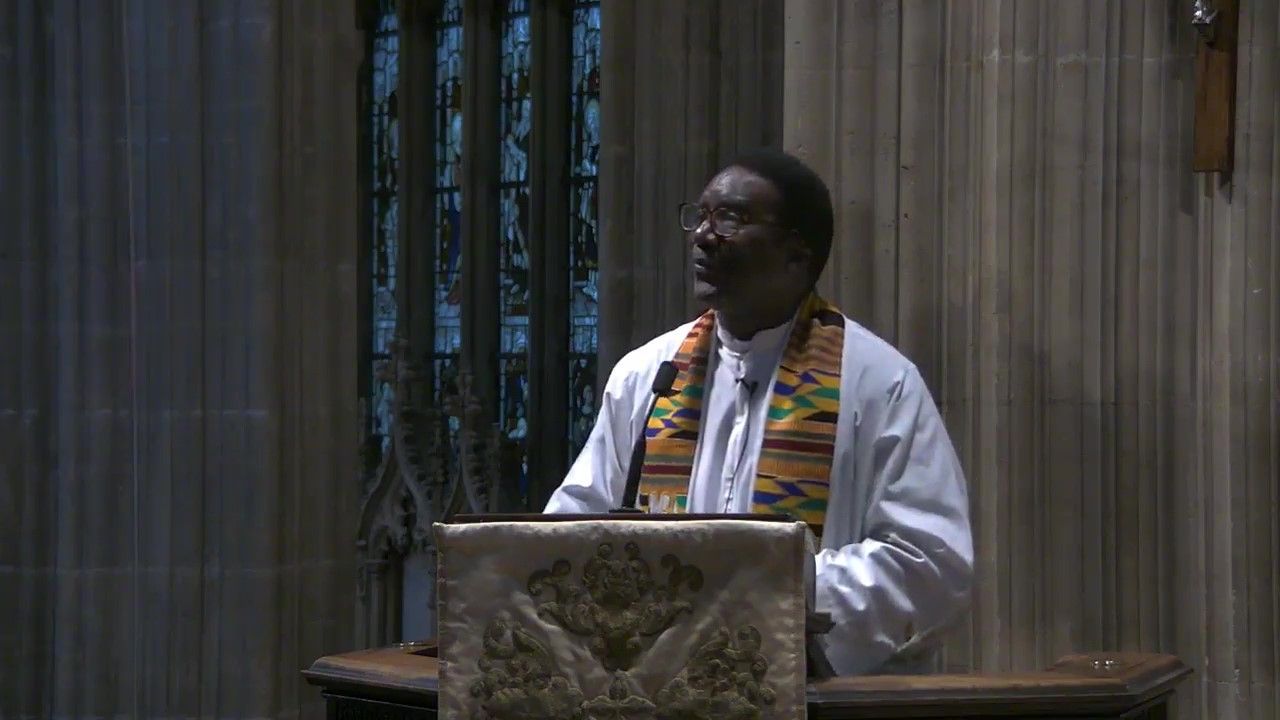Thought for the day
Julian of Norwich's Revelations of Divine Love 13 read by Richard Wallace
Revelations of Divine Love 13
BY JULIAN OF NORWICH
After this the Lord brought to my mind the longing that I had to Him afore. And I saw that nothing letted me but sin. And so I looked, generally, upon us all, and methought: If sin had not been, we should all have been clean and like to our Lord, as He made us.
And thus, in my folly, afore this time often I wondered why by the great foreseeing wisdom of God the beginning of sin was not letted: for then, methought, all should have been well. This stirring [of mind] was much to be forsaken, but nevertheless mourning and sorrow I made therefor, without reason and discretion.
But Jesus, who in this Vision informed me of all that is needful to me, answered by this word and said: It behoved that there should be sin; but all shall be well, and all shall be well, and all manner of thing shall be well.
In this naked word sin, our Lord brought to my mind, generally, all that is not good, and the shameful despite and the utter noughting[2] that He bare for us in this life, and His dying; and all the pains and passions of all His creatures, ghostly and bodily; (for we be all partly noughted, and we shall be noughted following our Master, Jesus, till we be full purged, that is to say, till we be fully noughted of our deadly flesh and of all our inward affections which are not very good;) and the beholding of this, with all pains that ever were or ever shall be,—and with all these I understand the Passion of Christ for most pain, and overpassing. All this was shewed in a touch and quickly passed over into comfort: for our good Lord would not that the soul were affeared of this terrible sight.
But I saw not sin: for I believe it hath no manner of substance nor no part of being, nor could it be known but by the pain it is cause of.
And thus pain, it is something, as to my sight, for a time; for it purgeth, and maketh us to know ourselves and to ask mercy. For the Passion of our Lord is comfort to us against all this, and so is His blessed will.[Pg 57] And for the tender love that our good Lord hath to all that shall be saved, He comforteth readily and sweetly, signifying thus: It is sooth that sin is cause of all this pain; but all shall be well, and all shall be well, and all manner [of] thing shall be well.
These words were said full tenderly, showing no manner of blame to me nor to any that shall be saved. Then were it a great unkindness to blame or wonder on God for my sin, since He blameth not me for sin.
And in these words I saw a marvellous high mystery hid in God, which mystery He shall openly make known to us in Heaven: in which knowing we shall verily see the cause why He suffered sin to come. In which sight we shall endlessly joy in our Lord God
More blog posts
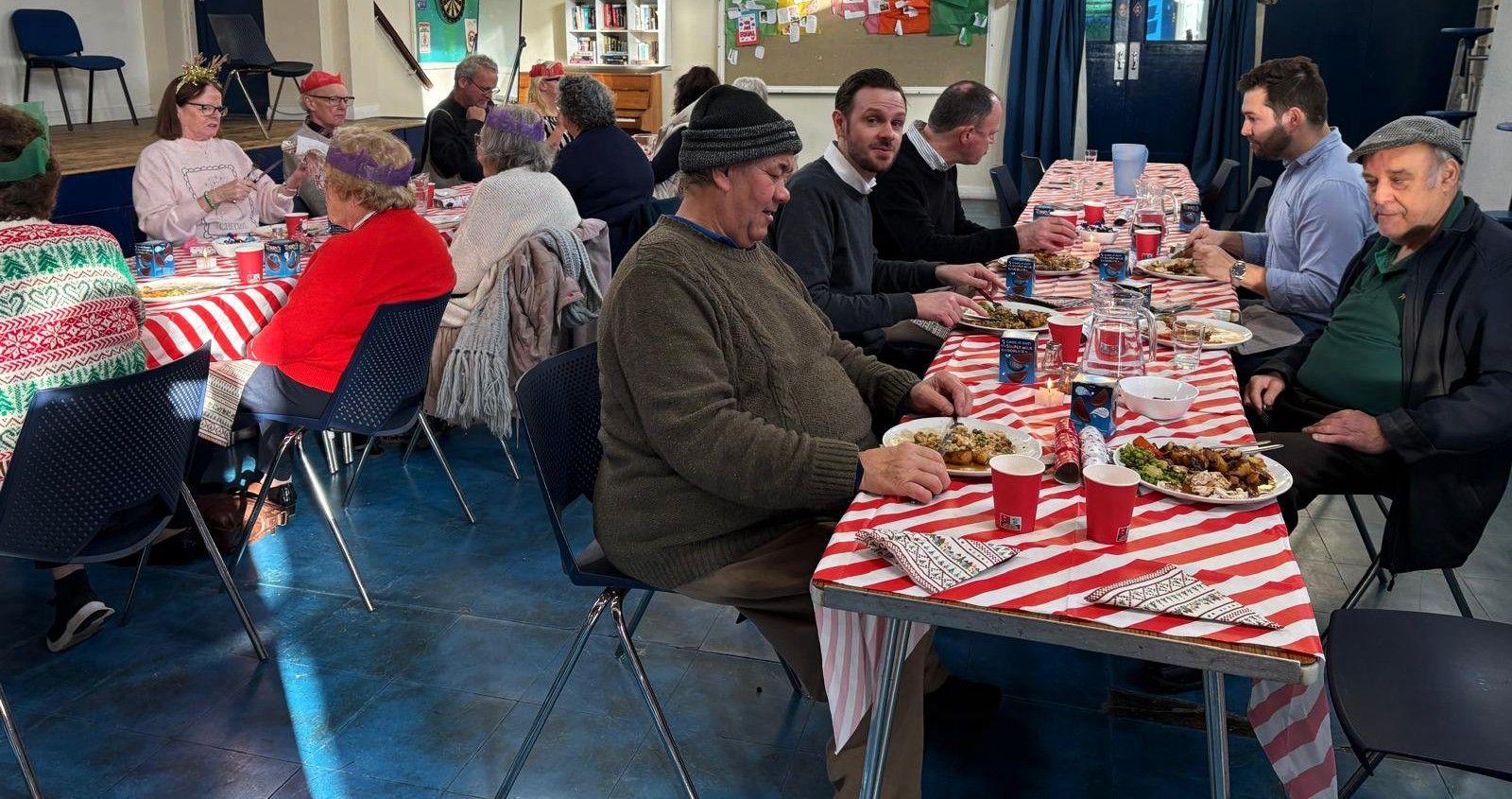
On a wet winter morning, Andy and I joined four local residents to knock on doors in Broughton and Yeamans Houses with one simple question: “How do we bring our older residents together?” We heard brilliant ideas –games, book groups, crafts, skittles, bingo, music, outdoor spaces, shared food and conversation. But we also heard about real barriers: fear of coming out, mobility challenges, and the difficulty of walking into a room where you don’t know anyone. Connection is at the heart of our work. While much of our rightly community focus on activity for children and young people, nearly half (47%) of residents on the Redcliffe Estate live alone. That’s a lot of neighbours who can go days without meaningful conversation, leaving adults isolated and unseen. Through regular door knocking and personal invitations, we’re helping make those first steps easier. Our next community meeting is on Thursday 26th February at Faithspace at 12.30pm , where our discussion topic will be ‘What do we want for older people in Redcliffe?’ and we’ll begin trialling the ideas residents suggested. In partnership with Faithspace, we will then be hosting a weekly space every Thursday at 2.30pm to connect older people through activities, tea and conversation. Sometimes community starts with a knock on the door — and an invitation to belong. For more information on the community meeting, door knocking, or for tailored support accessing community activities contact Andy Carruthers at andy.carruthers@stmaryredcliffe.co.uk or on 07933 090198. David Cousins 20.02.2026 In the News: SMR Community Work Recognised We’re delighted that our work with asylum seekers living in Redcliffe has been featured by Rising Arts Agency. You can read their report here . St Mary Redcliffe’s community work also features in a national report produced by Churchworks exploring the role of heritage buildings on community wellbeing (you can find us on p.18!). It’s wonderful to see how SMR’s work is contributing to a wider national conversation.
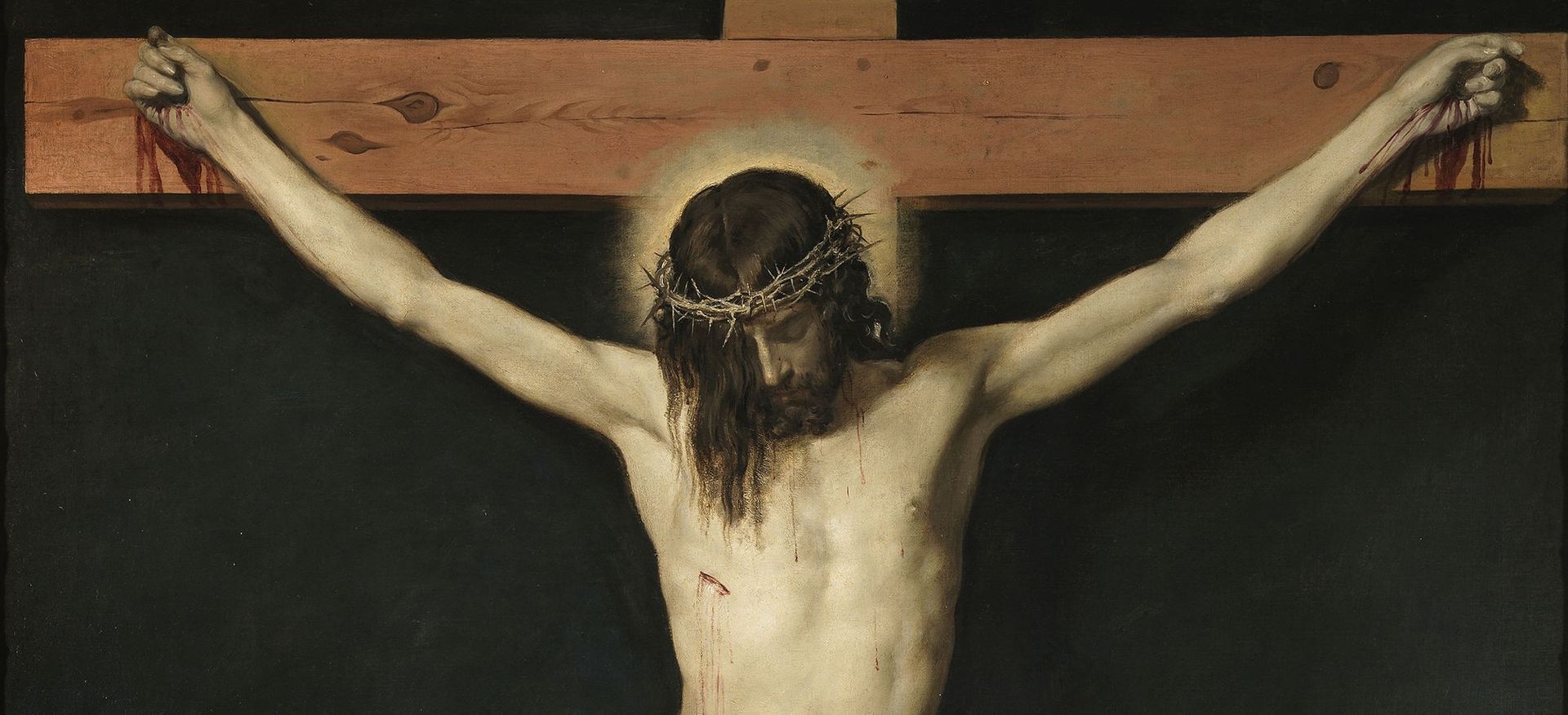
Wednesday 25th March 7:30pm “Anyone who has any interest in art… anyone who has any interest in visual culture … has to be interested in the Christian story.” Rachel Campbell-Johnston, The Times Easter in Art is a stunning film on one of the most significant events in history – the death and resurrection of Jesus. Highlighting artists such as Caravaggio, Leonardo da Vinci, Raphael, El Greco, and Salvador Dalí the film displays some of the greatest artworks ever produced, all shot on location in galleries around the world. The story of Christ’s death and resurrection has dominated western culture for the past 2,000 years. It is perhaps the most significant historical event of all time, as recounted by the gospels, but equally as depicted by the greatest artists in history. From the triumphant to the savage, the ethereal to the tactile, some of western civilization’s greatest artworks focus on this pivotal moment. This beautifully crafted film explores the Easter story as depicted in art, from the time of the early Christians to the present day. Shot on location in Jerusalem, United States and throughout Europe, the film explores the different ways artists have depicted the Easter story through the ages and thus depicts the history of us all. Easter in Art is directed by Phil Grabsky and features Rachel Campbell-Johnston, Dr. Jennifer Sliwka, Dr. David Gariff and the voices of Rupert Farley, Matt Wilkinson, David Rintoul and Glen McCready. It has a running time of 85 minutes. A musical welcome This event will feature music performed by members of St Mary Redcliffe Choir prior to the start of the film. Supporting St Mary Redcliffe Ticket sales for this event will support St Mary Redcliffe PCC. Charity number: 1134120
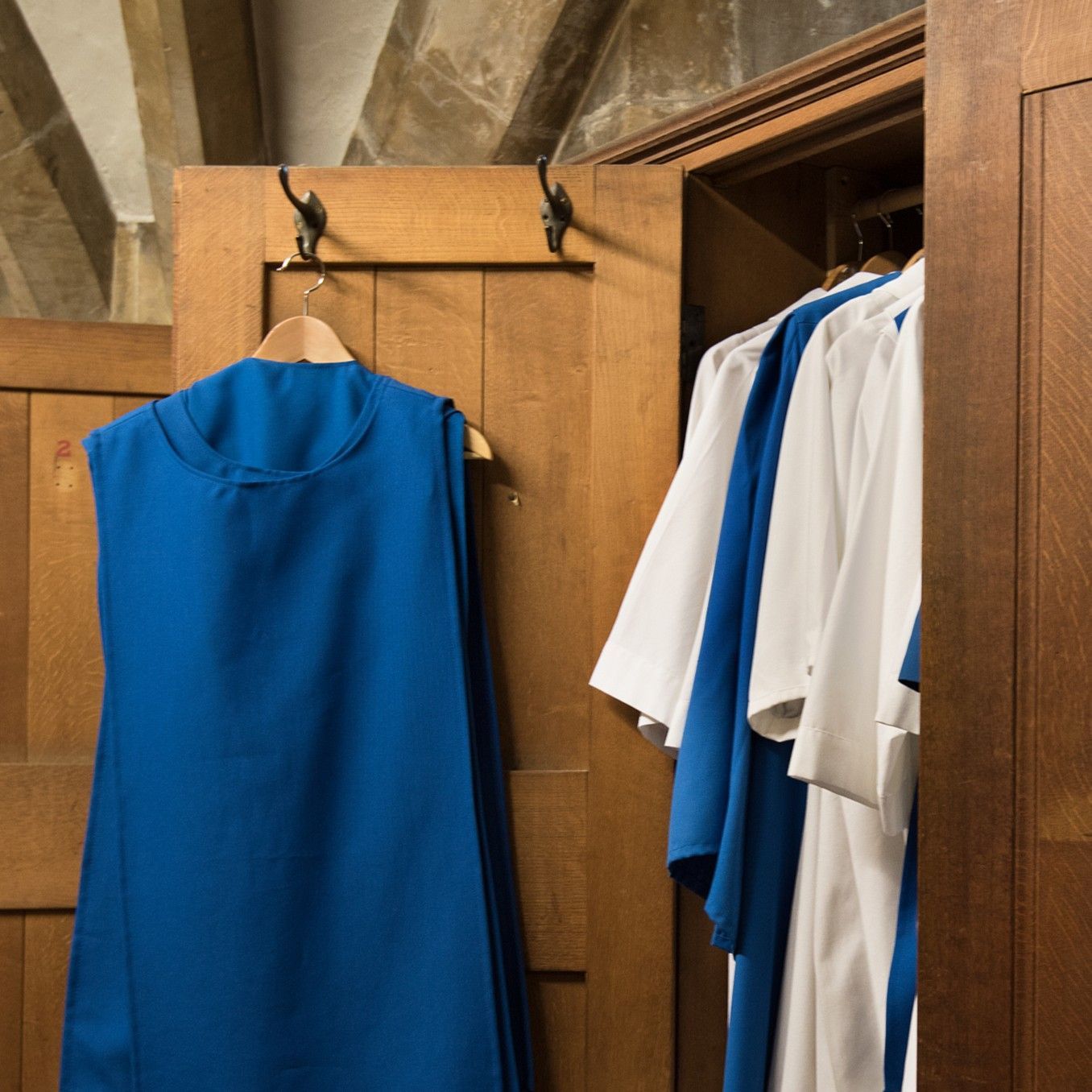
We Need Your Help! Choir Chaperones – Thursday Afternoons St Mary Redcliffe has a thriving music department – in fact it is right at the centre of our mission here – singing the song of faith and justice. A key part of this is our work with children who make up our treble line. Over the last year, we have seen a number of families move on from the choir as their children have grown up, and therefore we are in need of recruiting some choir chaperones – maybe you could help us? A choir chaperone attends rehearsals and is there should a child need some help. This might be that you take them to the toilet, help them find music, or contact their parents should they need it. 99% of the time, you can sit there and read a book or get on with some work, but they are essential for that 1% of the time where something unexpected might happen. We can easily find interesting tasks for you to do alongside this (e.g. covering some copies, tidying up music) but the main responsibility is looking after the trebles in the choir. At the moment we particularly need them for Thursday Afternoons – from 4:15 through to 5:30 for our Girls Chorister Rehearsals. We are also looking for people with experience of working with primary school children to help out at Sing Start! which runs from 5:30 till 6:30, also on a Thursday evenings. Any person who would like to help on this role would be subject to a reference check, attaining a DBS and completing some safeguarding training. If you feel you could volunteer to help the choir, or want some more information about what it would involve, contact our Director of Music on joe.cryan@stmaryredcliffe.co.uk
